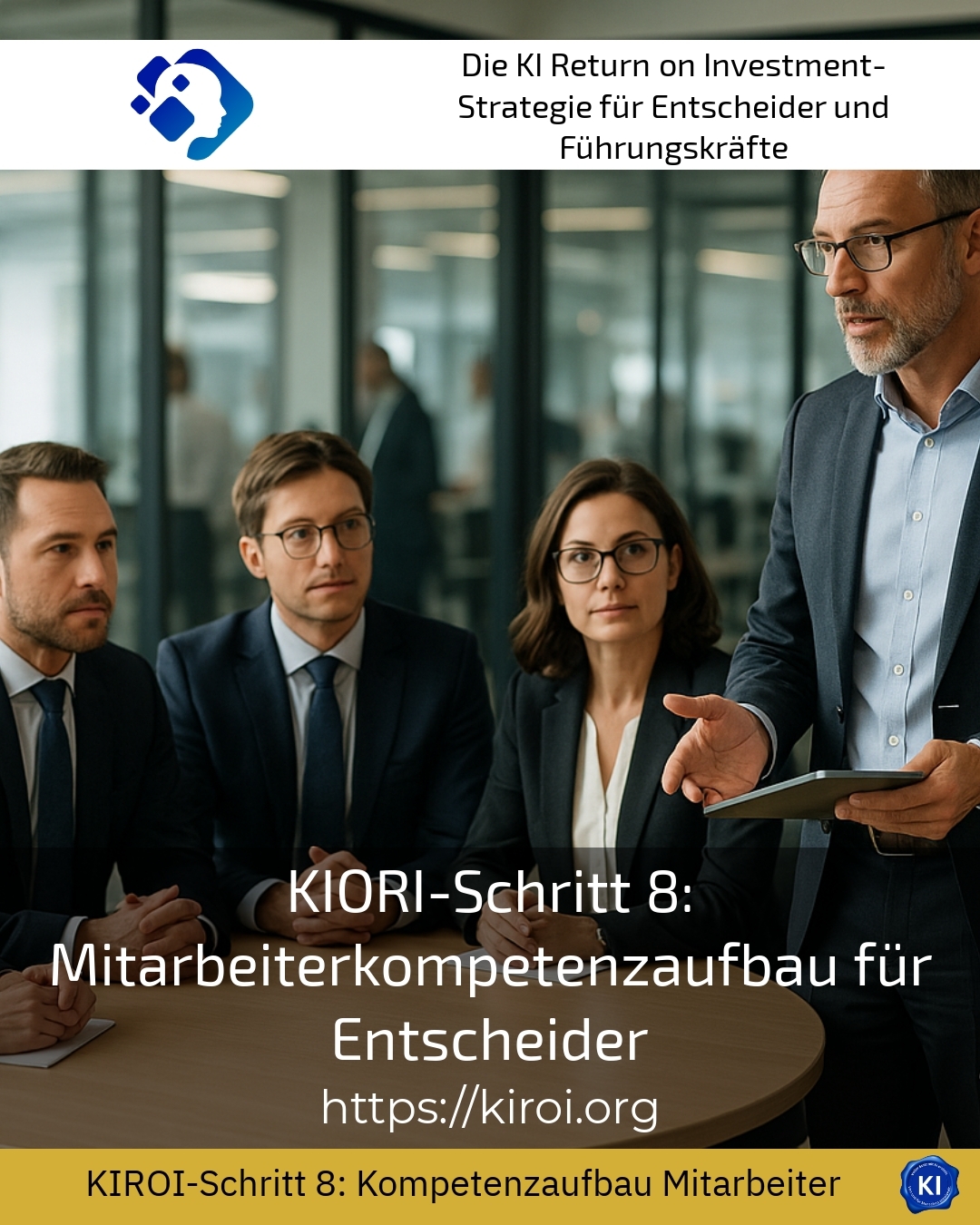Building employee competences is a central component of successful corporate development. Many decision-makers ask themselves how they can strengthen their teams in a targeted manner. Clients often report that they are faced with the challenge of promoting specialist knowledge, methodological expertise and social skills at the same time. Building employee competences is not a one-off process, but a continuous journey. It helps companies to react flexibly to changes and grow sustainably.
Why building employee expertise is crucial
Companies that take employee competence development seriously benefit from greater efficiency and better motivation. Teams work more innovatively and stay with the company longer. The development of professional expertise, methodological competence and social skills is particularly important. Many managers report that they are able to react more quickly to new requirements thanks to targeted measures.
A practical example: In a medium-sized company, methodological expertise was strengthened through regular reflection sessions. Employees learned to systematically analyse problems and develop solutions. This noticeably improved the quality of work.
Another example: a team from the field of project management used peer learning formats to support each other. This allowed everyone involved to benefit from the experience of others and expand their own skills.
A third example: In an international company, communication skills were promoted through special workshops. Employees learnt how to present information clearly and comprehensibly. This led to better results in collaboration with customers and partners.
Building employee expertise in practice
Practical methods for building employee competences
The practical level is an important building block for developing employee expertise. The focus here is on learning through direct application. Job rotation, project work and on-the-job training are tried and tested methods. Employees take on new tasks and improve their skills in a real-life context.
One example: In a technology company, job rotation was used to integrate employees into different departments. This allowed them to gain new perspectives and expand their expertise.
Another example: a team from the customer service department worked on a challenging project outside their regular area of activity. As a result, they developed not only technical skills, but also project management skills and teamwork.
A third example: In a production company, on-the-job training was used to quickly familiarise new employees. Experienced colleagues were available as contact persons and provided assistance. This led to faster familiarisation and greater satisfaction.
Individual support and feedback
The coaching level is crucial for building employee competences. Mentoring programmes and one-on-one coaching sessions offer targeted feedback and individual support. Coaches help to overcome challenges and develop personal strengths.
One example: A mentoring programme was introduced in a service company. Experienced employees accompanied new colleagues over a longer period of time. This led to faster integration and greater motivation.
Another example: a team from the sales department used regular feedback sessions to improve their communication skills. The employees received constructive feedback and were able to develop their strengths in a targeted manner.
A third example: Leadership coaching was offered in an international company. Managers received individualised support and were able to develop their skills in a targeted manner.
Structured training and knowledge transfer
The training level is important for building employee expertise. Workshops, seminars and training courses teach specific skills and expand theoretical knowledge. The focus is on applying what has been learnt in practice later on.
One example: Regular workshops on new technologies were offered in a financial services company. Employees learned how to use digital tools effectively and optimise their work.
Another example: a team from the marketing department used e-learning platforms to learn flexibly and independently. Employees were able to expand their knowledge at their own pace and apply it immediately.
A third example: Seminars on quality management were offered in a production company. The employees learnt how to optimise processes and avoid errors.
BEST PRACTICE with one customer (name hidden due to NDA contract) A comprehensive competency model was developed in an international company. Employees were given individual development plans and regular feedback. Targeted measures enabled them to expand their expertise, methodological skills and social skills. This led to greater efficiency and better teamwork.
My analysis
Building employee expertise is a central component of successful corporate development. It helps companies to react flexibly to changes and grow sustainably. Practical methods, individualised support and structured training are crucial for success. Many managers report that they are able to react more quickly to new requirements thanks to targeted measures. Building employee expertise is not a one-off process, but a continuous journey. It not only promotes employee performance, but also innovation and motivation within the company.
Further links from the text above:
Successful skills development: 9 tips and 3 levels
Skills development: importance and methods
Methodological expertise: Why it is crucial for your success
Popular methods for developing the skills of company employees
Competence model: For successful personnel development
Competence management - definition, advantages, models
Methodological competence: definition, examples, importance in the profession
Methodological competence - Definition | Gabler Wirtschaftslexikon
Methodological expertise - simply explained with examples
Employee management: methods, definition & styles
For more information and if you have any questions, please contact Contact us or read more blog posts on the topic Artificial intelligence here.















